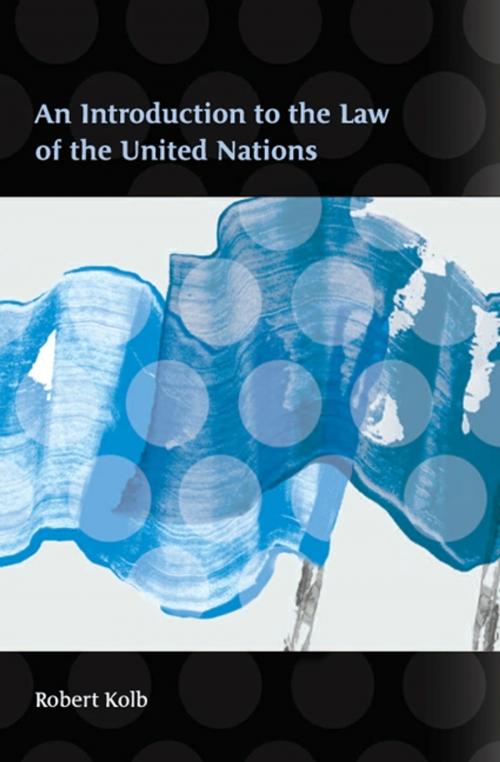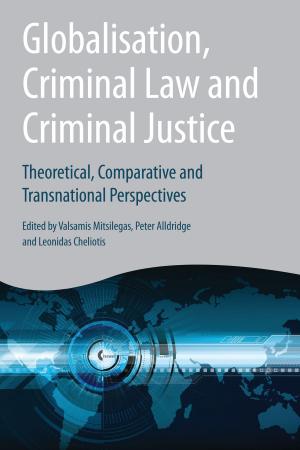An Introduction to the Law of the United Nations
Nonfiction, Reference & Language, Law, International| Author: | Professor Robert Kolb | ISBN: | 9781847317292 |
| Publisher: | Bloomsbury Publishing | Publication: | February 26, 2010 |
| Imprint: | Hart Publishing | Language: | English |
| Author: | Professor Robert Kolb |
| ISBN: | 9781847317292 |
| Publisher: | Bloomsbury Publishing |
| Publication: | February 26, 2010 |
| Imprint: | Hart Publishing |
| Language: | English |
This work aims to fill a gap in the existing legal literature by presenting a compact, concise but nevertheless panoramic view of the law of the United Nations. Today the organisation is at the centre of all multilateral international relations and impossible to avoid. And of course the UN Charter is a foundational document without which modern international law cannot be properly understood.
In spite of its importance, this pre-eminent world political organisation is poorly understood by the general public, and the extent and variety of its activities is not widely appreciated. Even lawyers generally possess insufficient knowledge of the way its legal institutions operate. Assessments of the organisation and judgements about its achievements are consequently frequently distorted.
This work is aimed especially at remedying these deficiencies in public and legal understanding, but also at presenting the organisation as a coherent system of values and integrated action. Thus the book presents an overarching view of the significance of the UN organisation in general, the history of its origins in the League of Nations, the aims and principles of the Charter, governmental agencies, members of the Organisation, the non-use of violence and collective security, the peaceful settlement of disputes, and the question of amendments to the Charter.
This work will be suitable for students of law and international relations, as well as scholars and those interested in the work and organisation of the United Nations.
This work aims to fill a gap in the existing legal literature by presenting a compact, concise but nevertheless panoramic view of the law of the United Nations. Today the organisation is at the centre of all multilateral international relations and impossible to avoid. And of course the UN Charter is a foundational document without which modern international law cannot be properly understood.
In spite of its importance, this pre-eminent world political organisation is poorly understood by the general public, and the extent and variety of its activities is not widely appreciated. Even lawyers generally possess insufficient knowledge of the way its legal institutions operate. Assessments of the organisation and judgements about its achievements are consequently frequently distorted.
This work is aimed especially at remedying these deficiencies in public and legal understanding, but also at presenting the organisation as a coherent system of values and integrated action. Thus the book presents an overarching view of the significance of the UN organisation in general, the history of its origins in the League of Nations, the aims and principles of the Charter, governmental agencies, members of the Organisation, the non-use of violence and collective security, the peaceful settlement of disputes, and the question of amendments to the Charter.
This work will be suitable for students of law and international relations, as well as scholars and those interested in the work and organisation of the United Nations.















